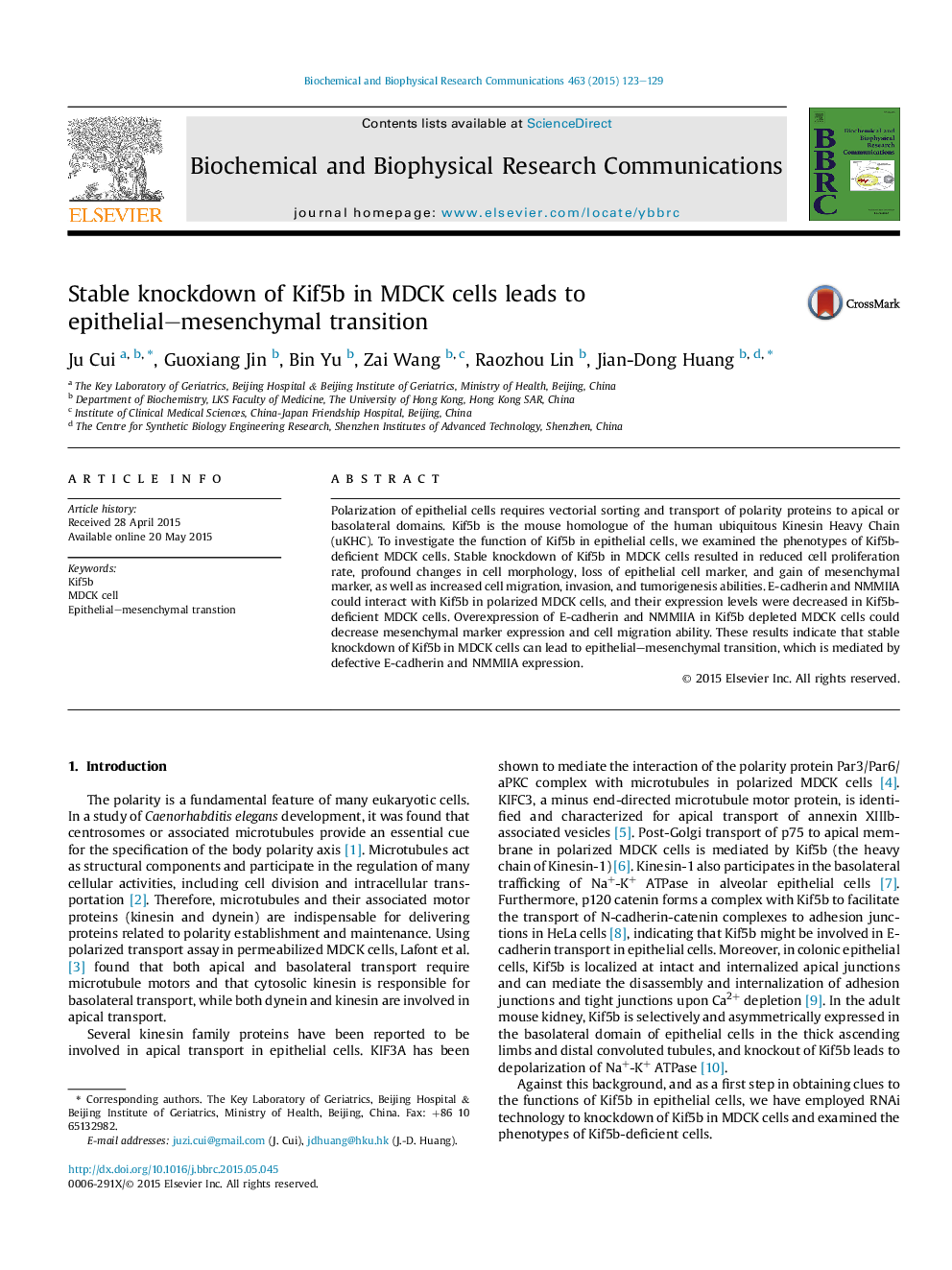| Article ID | Journal | Published Year | Pages | File Type |
|---|---|---|---|---|
| 1927991 | Biochemical and Biophysical Research Communications | 2015 | 7 Pages |
•Knockdown of Kif5b in MDCK cells resulted in reduced cell proliferation rate.•Kif5b deficient MDCK cells underwent epithelial–mesenchymal transition.•E-cadherin and NMMIIA could interact with Kif5b in polarized MDCK cells.•Decreased E-cadherin and NMMIIA levels mediate EMT in Kif5b deficient MDCK cells.•Overexpression of E-cadherin and NMMIIA reverse the effects of Kif5b knockdown.
Polarization of epithelial cells requires vectorial sorting and transport of polarity proteins to apical or basolateral domains. Kif5b is the mouse homologue of the human ubiquitous Kinesin Heavy Chain (uKHC). To investigate the function of Kif5b in epithelial cells, we examined the phenotypes of Kif5b-deficient MDCK cells. Stable knockdown of Kif5b in MDCK cells resulted in reduced cell proliferation rate, profound changes in cell morphology, loss of epithelial cell marker, and gain of mesenchymal marker, as well as increased cell migration, invasion, and tumorigenesis abilities. E-cadherin and NMMIIA could interact with Kif5b in polarized MDCK cells, and their expression levels were decreased in Kif5b-deficient MDCK cells. Overexpression of E-cadherin and NMMIIA in Kif5b depleted MDCK cells could decrease mesenchymal marker expression and cell migration ability. These results indicate that stable knockdown of Kif5b in MDCK cells can lead to epithelial–mesenchymal transition, which is mediated by defective E-cadherin and NMMIIA expression.
